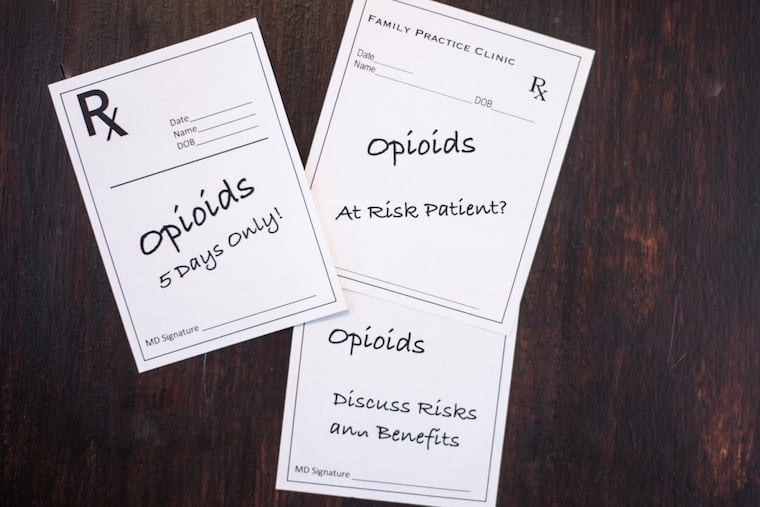Cancer patients’ desire to avoid opioids puts them at risk of harm including overdose, Penn study finds
Cancer patients' struggles with pain are often overlooked amid efforts to curb the opioid epidemic.

A new study suggests that many cancer patients are mismanaging their opioid use — reducing prescribed doses, going on and off the drugs, stockpiling pills for pain flares — because they fear addiction, stigma, and side effects.
That mismanagement may “expose patients to underappreciated safety risks," including the potentially fatal risk of overdosing as their tolerance to the painkillers fluctuates, concluded the study, led by Salimah H. Meghani, a palliative care expert and professor in the University of Pennsylvania School of Nursing.
She and her five co-authors call for educating cancer patients about the importance of taking opioids as prescribed, and for programs aimed at alleviating their sense of shame.
The opioid addiction epidemic has spurred “a lot of focus on providers’ over-prescribing practices,” Meghani said in an interview. “But under-prescribing and underuse can also be problematic.”
In previous research, Meghani found that oncologists were confused by conflicting and inconsistent opioid prescribing advice. That inspired three oncology organizations to confer with the U.S. Centers for Disease Control and Prevention, which this year issued a letter stressing that its 2015 opioid guidelines were never intended to deny the therapy to patients suffering pain from cancer, its treatment, or the aftereffects.
For the new study, just published in the Journal of Pain and Symptom Management, Meghani’s team investigated the attitudes and experiences of 65 Penn cancer patients who had experience with opioids to treat moderate to severe pain. All of them were asked to “list the things that come to mind when you think about taking your pain medications.” Then, 32 of them were interviewed in depth.
“Pain relief” emerged as the top concern in their lists, but “addiction” was second, followed by “dislike” and “side effects." Opioids can cause sedation, dizziness, constipation, nausea and vomiting, as well as physical dependence.
“I take all these pain pills, but they were making me so sick,” said a 74-year-old woman with metastatic kidney cancer. “I’m stumbling around, can barely stand up. I told the doctor, ‘I’m not taking it anymore.’ That’s what I’ve been doing, up until [the pain] got so severe. I went back on oxycodone.”
A 64-year-old man with soft tissue cancer said he had avoided opioids so far by buying marijuana from a dealer in Colorado. A 42-year-old woman with breast cancer described “taking a rest” from an opioid by switching to a combination of over-the-counter pain relievers. Yet another woman with severe pain from metastatic cancer said she told her doctor she didn’t want time-released morphine for fear of “getting addicted to certain things.”
Although most patients reported no trouble getting opioid prescriptions or insurance coverage, some, particularly African Americans, described insurance barriers and delays in treating pain because of preauthorization requirements.
In addition to urging education and de-stigmatization programs, the researchers concluded that doctors should monitor cancer patients’ opioid access problems and co-prescribe naloxone, the overdose antidote, to have on hand for an emergency. The researchers also called for greater access to alternative pain remedies such as acupuncture.